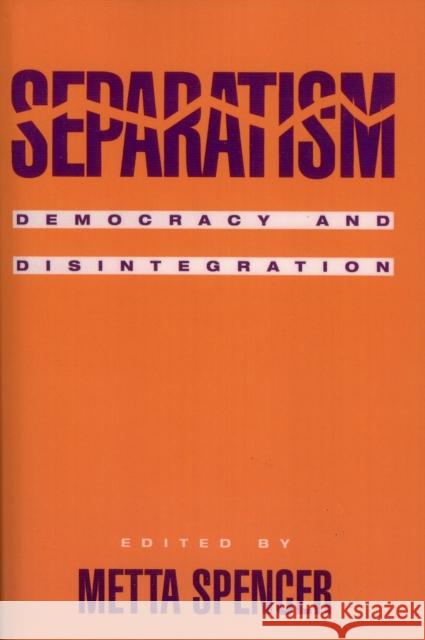Separatism: Democracy and Disintegration » książka
Separatism: Democracy and Disintegration
ISBN-13: 9780847685851 / Angielski / Miękka / 1998 / 346 str.
As we approach the millennium the world is experiencing civil wars exclusively--half of which are being waged over the issue of secession. This book offers a comparative view of nine historic separatist movements, some of which have achieved the break-up of an empire or a state, and others that to date have not. Separatist struggles occur in waves that tend to coincide with upsurges of democratization. Several chapters explore this connection, making comparisons with economic and geopolitical causes. The authors analyze the long term effects of secession: after partition, ethnic strife typically continues for generations; minorities decline in status; and democracy and human rights are derogated. The break-up of one state often leads to further fragmentation, as in the disintegration of the Ottoman, Austro-Hungarian, and Russian empires, where years later separatism unfolded in the successor states of Yugoslavia, Czechoslovakia, Palestine, Chechnya and Tatarstan. The authors attribute much of today's separatism to the demagoguery of politicians losing legitimacy in post-communist states, for whom nationalism is a convenient populist ideology. A broader explanation, however, points to the failure of modern democracies to develop constitutional mechanisms reconciling the expression of particularistic identities with the universalism of citizenship. The book reviews proposals toward that end.











